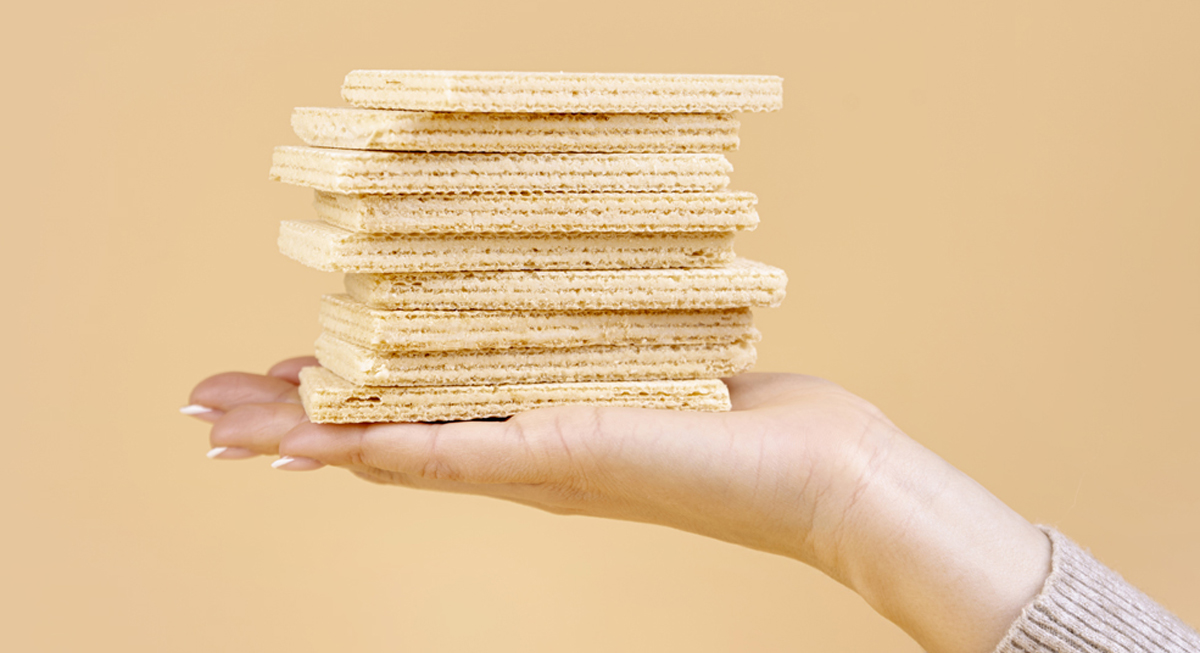

APPLICATION
Application of a barrier between edible layers
A layer inside a product in contact with another layer sometimes contains a component that may migrate and affect the product quality. To a certain degree, this migration can be prevented. The choice of a barrier ingredient and the application method is critical.
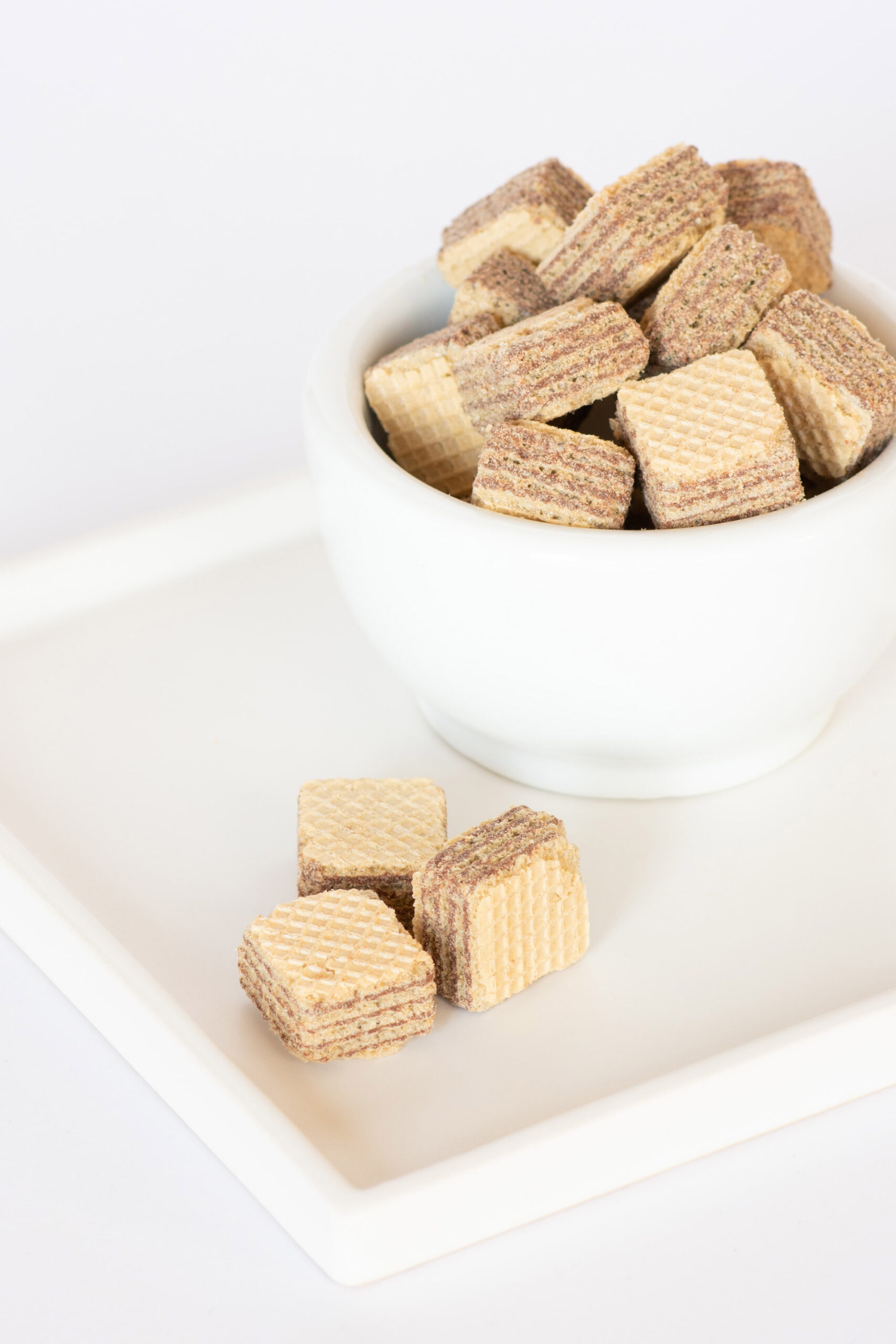

BASE
Core products
This product can be :
- A wafer on which a light aerated cream is applied
- A biscuit on which a jam with a high more ware activity is applied
- Two layers of ice cream with a different flavour and colour
In most cases, the component whose migration must be prevented is water. Its ability to migrate is measured by water activity.
RECIPE
Ingredients
The ingredient used to form a barrier can be:
- Fat is generally saturated fat that is solid at ambient temperature. Chocolate is such a fat, especially if it is partly made of vegetable cocoa equivalent. Other vegetable fat combinations can be used.
- Protein-based ingredients: zine, gluten. Proteins or other hydrocolloids have a limited barrier effect against moisture and are rather used as a barrier against fat migration.
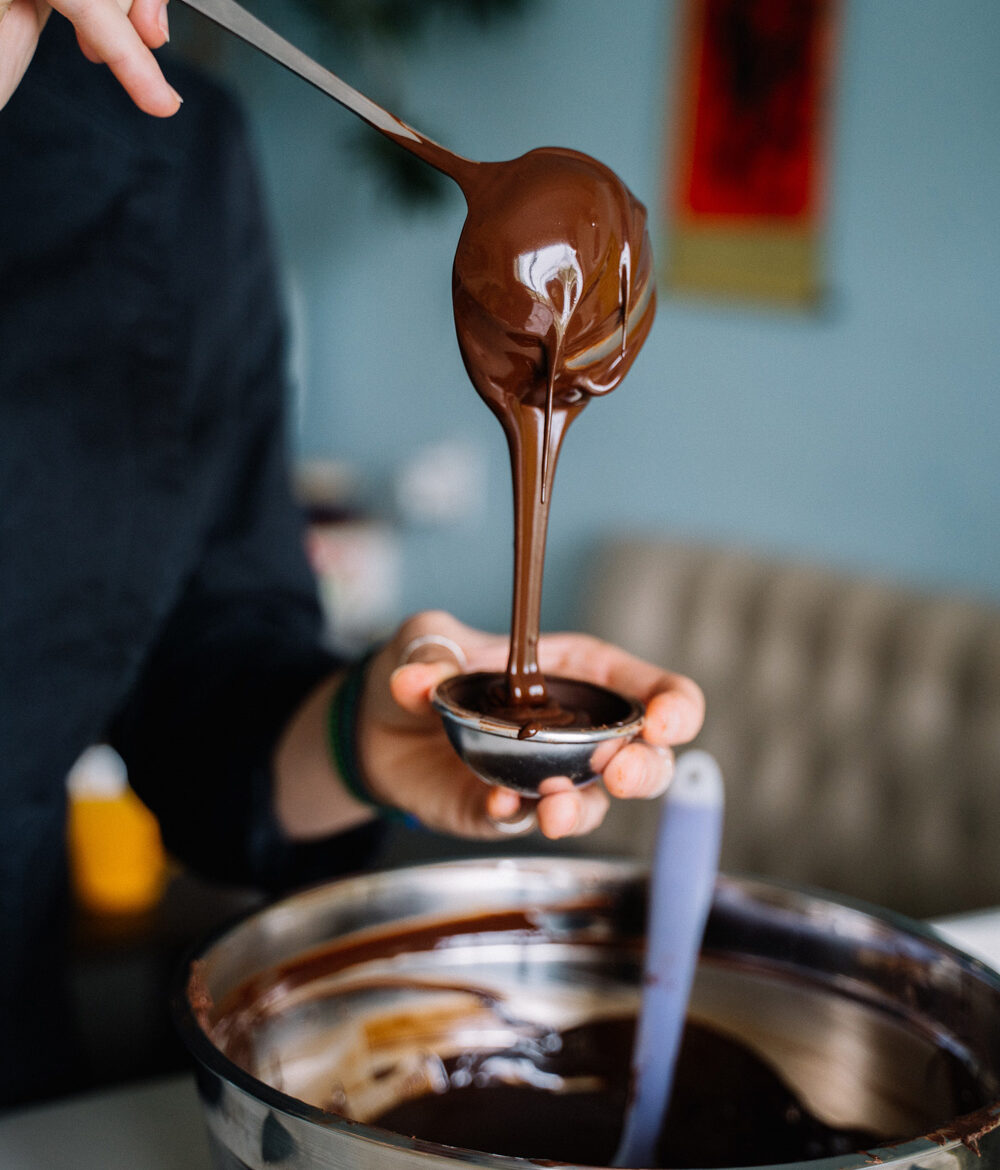





RECIPE
Ingredients
The ingredient used to form a barrier can be:
- Fat is generally saturated fat that is solid at ambient temperature. Chocolate is fat, especially if it is partly made of vegetable cocoa equivalent. Other vegetable fat combinations can be used.
- Protein-based ingredients: zine, gluten. Proteins or other hydrocolloids have a limited barrier effect against moisture and are rather used as a barrier against fat migration.
PROCESS
How does it work?
The coating operation consists in homogeneously applying the required quantity. It is usually a continuous operation in the industry. After coating, the applied ingredient must be stabilized by cooling or drying, depending on its nature.
Step 1.
Fat or hydrocolloid preparation.
Step 2.
Application by enrobing or spraying.
Step 3.
Stabilisation by drying or cooling.
PROCESS
Coating system
The application system may consist of an enrobing machine or, better, a spaying device if only a topical application is desired.
PROCESS
Coating system
Application spray system.
PRODUCT EVALUATION
How do you measure your success?
Key quality features
The applied barrier coating must meet precise requirements.
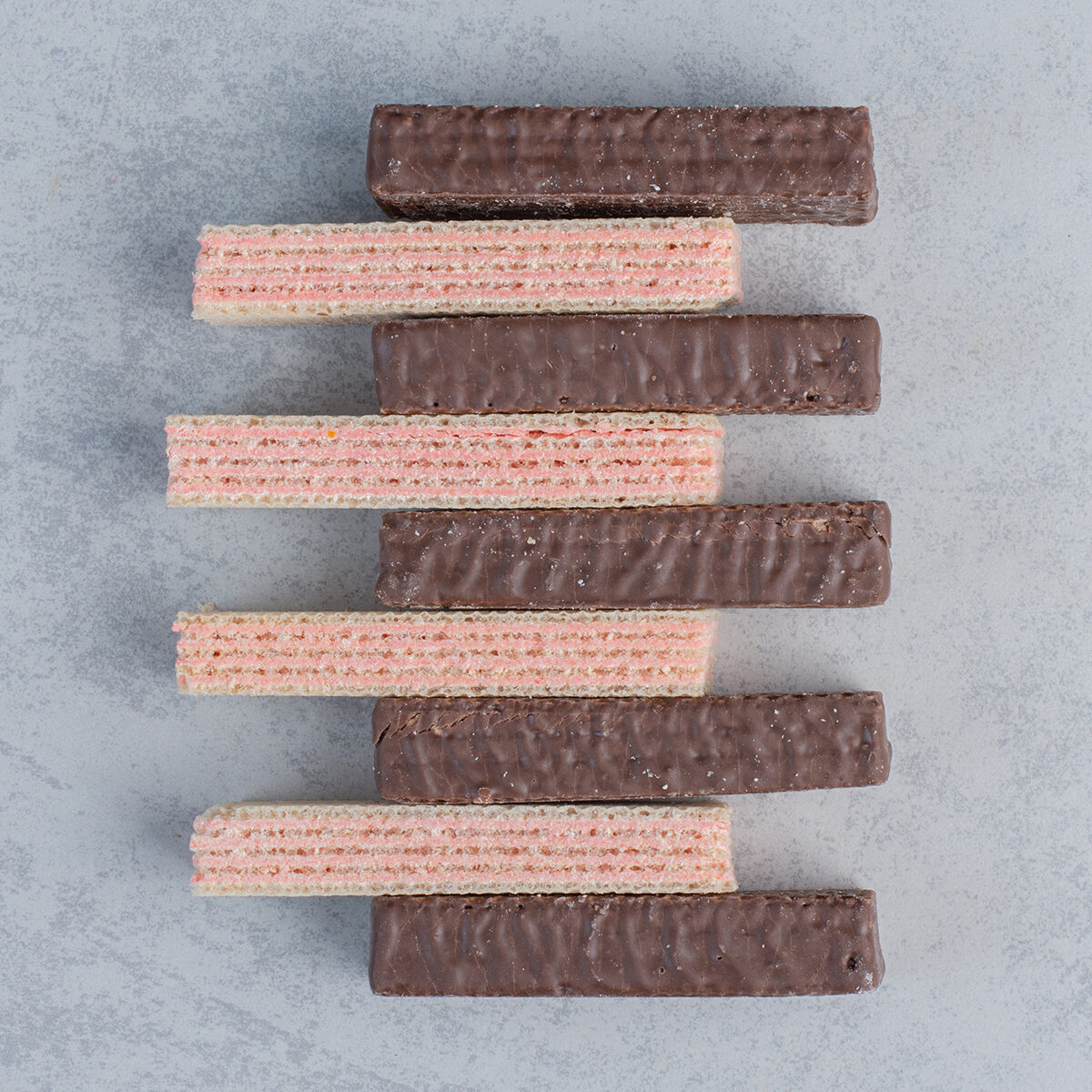

Homogeneity
Even thickness.
Taste
The choice of the ingredient should not affect the overall taste of the product.
Stability
The coating must retain its efficiency. It is a challenge as heating in a later step reduces the barrier effect by melting or swelling, thus facilitating moisture migration.
Key quality parameters
Critical factors drive the process.
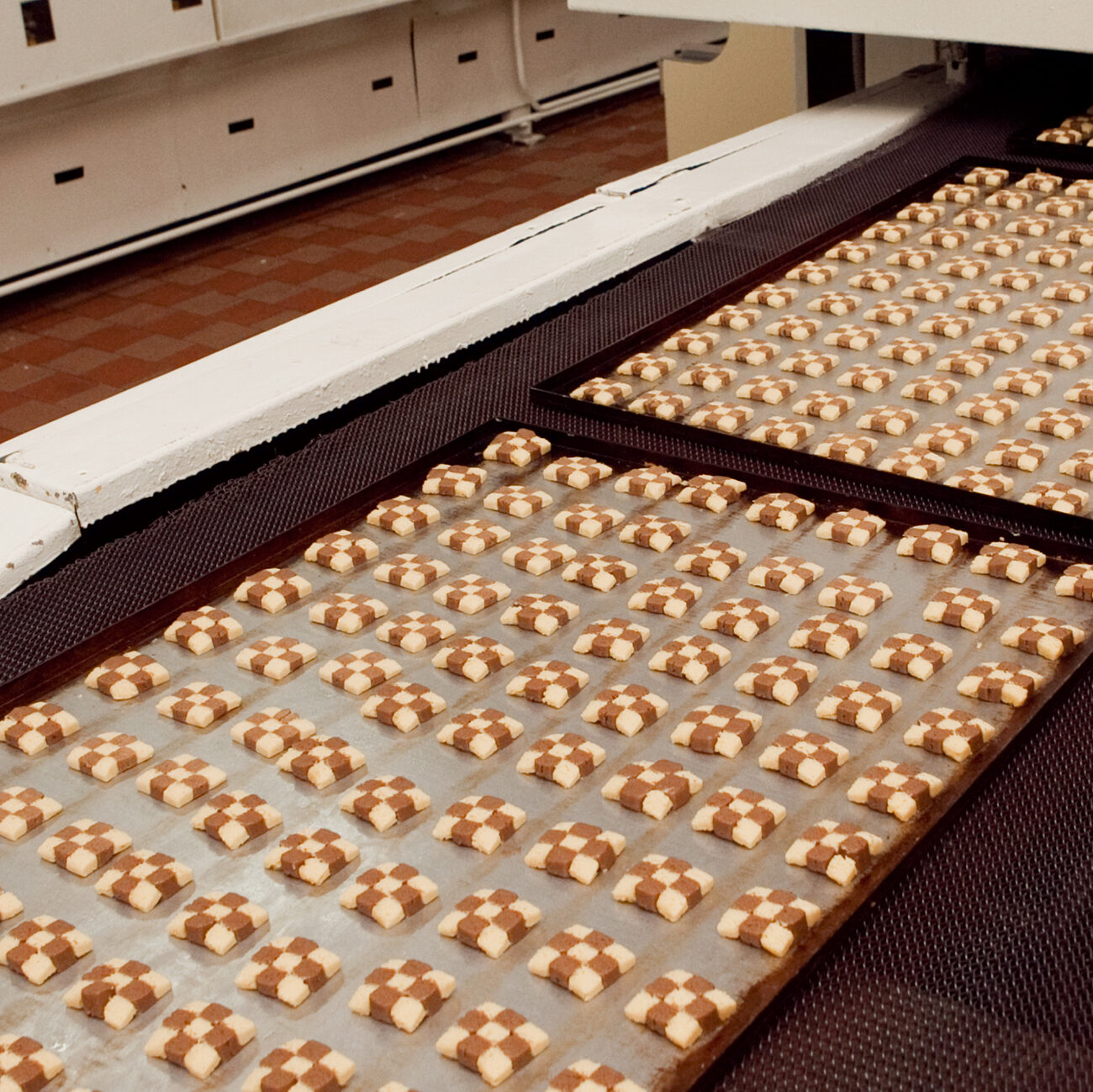

Temperature
In the case of fat, it must be applied fluid and set rapidly.
Dosage control
The dosage must be precise in surface, quantity, and homogeneity.
Ingredient choice
It depends on the lower and upper layer nature and texture.
APPLICATION
Discover more applications

